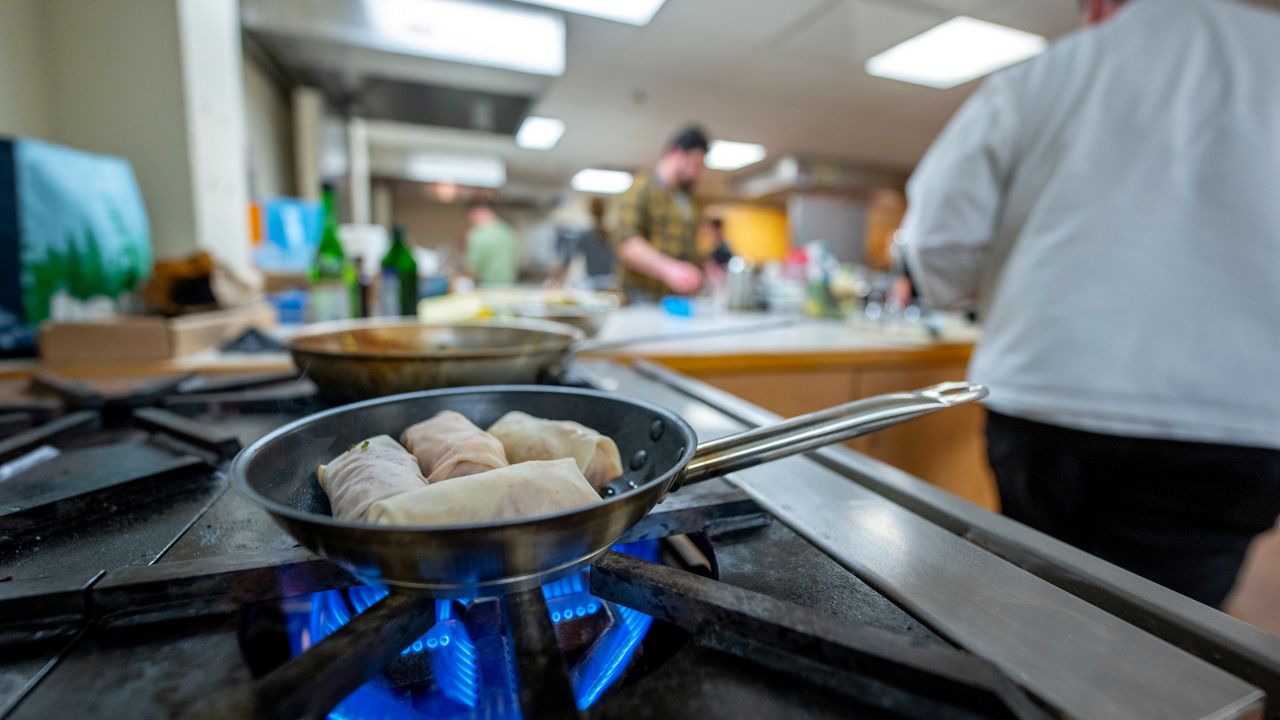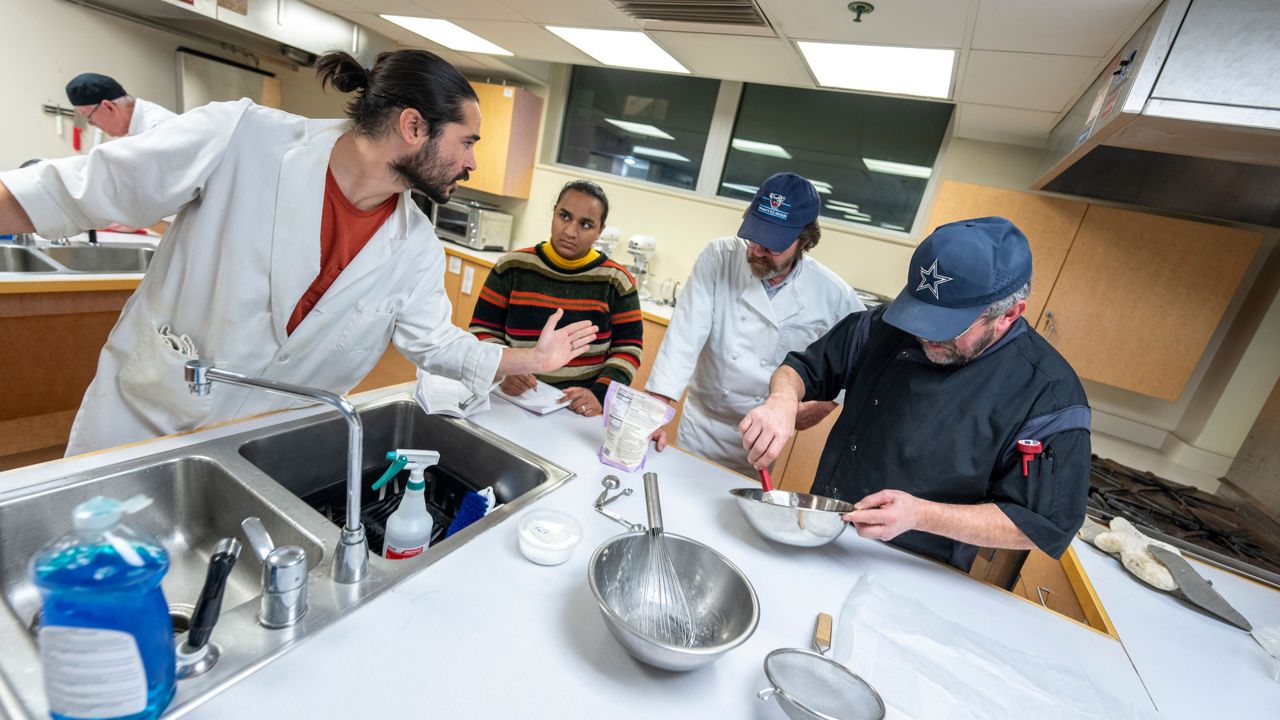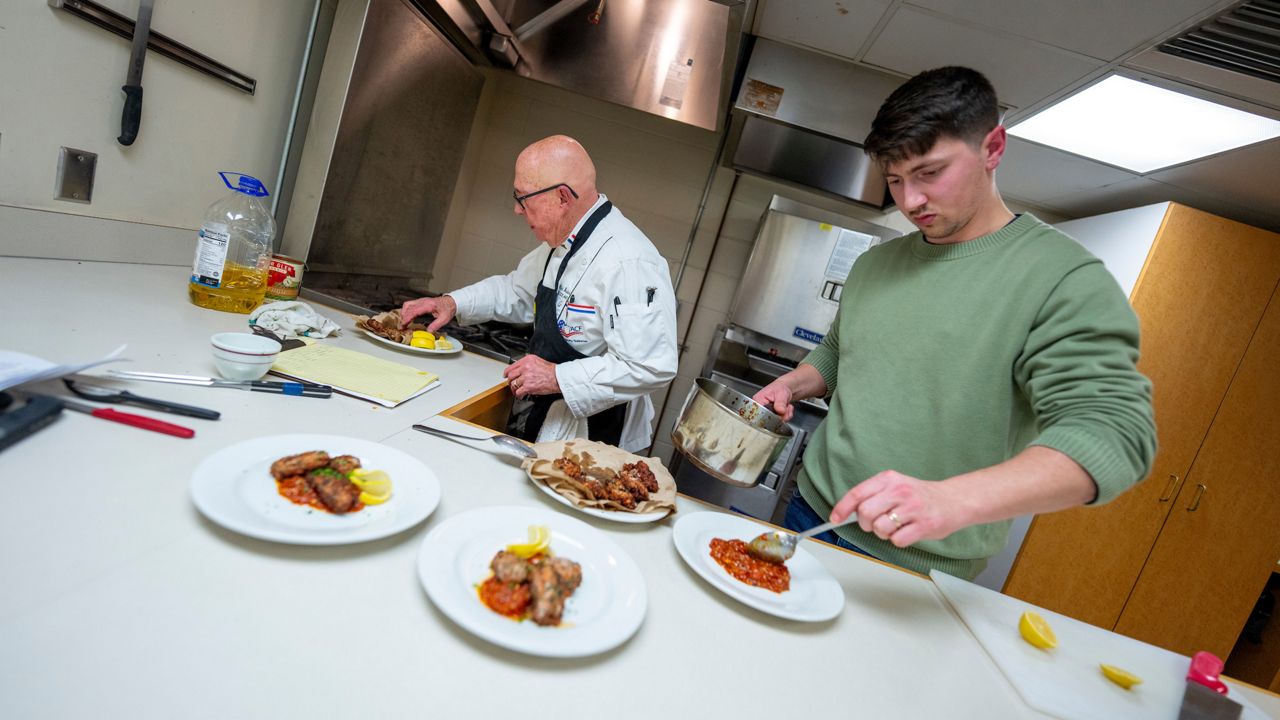When most people think calamari, they think of breaded rings with dipping sauce, a staple appetizer at many restaurants. What most folks may not know is that a large portion of squid caught for food is usually tossed out in the trash. Now, a joint project between a Rhode Island-based seafood company and the University of Maine at Orono is looking to address a major source of food waste associated with squid by preparing it in new ways.
“About half of it is usually disposed of in landfills,” said Denise Skonberg, a professor of food science at the university who is heading up the project.
Squid have fins which, while often cut off and discarded, are just as edible as any other part of the animal. The university’s project aims to prove to people that they can be just as delicious. The two-year project seeks to develop new products made from squid fins that can be mass-produced and frozen for foodservice companies that already carry and sell the calamari.
The project is a joint effort between the university and The Town Dock, a wholesale calamari product company based in Narragansett, Rhode Island.
A nearly $230,000 grant from the NOAA Fisheries Saltonstall-Kennedy Competitive Grants Program is paying for the research.

Skonberg said the university started by bringing in 13 different chefs for a day in December 2023 to brainstorm and try out several recipes.
“They seemed so eager,” she said. “I was surprised.”
Variations included squid fin-based nuggets, sliders, meatballs, egg rolls and dumplings.
“I liked the egg rolls,” said Brianna Hughes, vice president of operations, supply chain and quality at The Town Dock.
Hughes did her graduate studies at the university in Orono, earning both a master’s degree and a doctorate in food science. Hughes said she stayed in touch with Skonberg and collaborated with her to develop the food waste prevention project.
Hughes said the project isn’t just about coming up with something that tastes good. There’s a real need to find new ways to use food byproducts that are otherwise just being thrown away, she said, and she looked at collaborating with Skonberg as a way to do her part with squid.
“When we put our heads together, it was an opportunity to help improve sustainability of squid stocks,” she said.
To truly be successful, Skonberg said, the products have to be easy to produce and able to be frozen. Right now, she said, the university is in the middle of a six-month frozen storage study, lasting into June of this year, to see which products the chefs came up with would work out best as frozen offerings.
Squid fishing is a multimillion-dollar business in New England and the mid-Atlantic states alone. Data from NOAA Fisheries indicates 40.4 million pounds of longfin squid was harvested in 2022, with an estimated value of $60.2 million, along with 12 million pounds of shortfin squid, worth an estimated $6.4 million.
As the study goes on, Skonberg expects to get input from industry leaders at trade shows before deciding on the best products for using squid fins. She said the university will share the results with seafood companies, in the hope that they will produce and sell the new dishes to help cut down on food waste.






